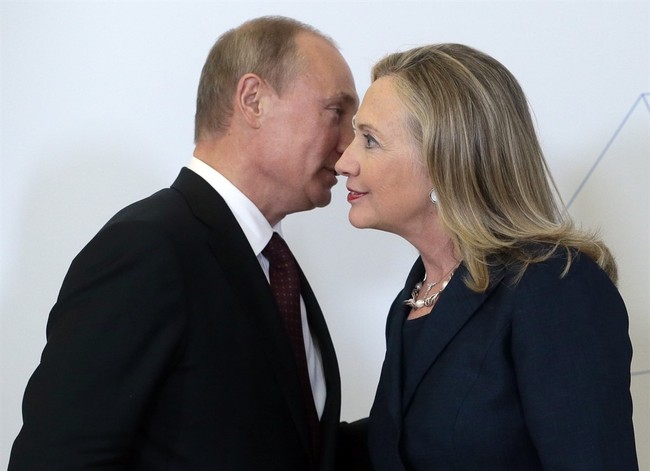Politics
Social Media Sparks Debate on Obama and Putin’s Past Encounters

A recent social media post has ignited a discussion about former President Barack Obama and his interactions with Russian President Vladimir Putin. The post, shared by activist Andrea Junker, portrays Obama as a decisive leader in contrast to current political figures. It has garnered significant attention, prompting various responses that highlight other leaders’ approaches to Putin over the years.
In her tweet, Junker suggested that Obama handled Putin with strength, stating, “This is how an American president should treat Putin,” alongside a photo of Obama appearing assertive during a meeting. Critics quickly seized the opportunity to remind her of events such as the annexation of Crimea in 2014, questioning the effectiveness of Obama’s policies towards Russia.
Junker’s tweet has since gone viral, with reactions spanning the political spectrum. Some users, including those from the conservative social media platform Twitchy, have compiled a thread comparing Obama’s interactions with those of other leaders, including Joe Biden, Hillary Clinton, John Kerry, and George W. Bush. Each post contrasts their depictions with Putin, raising discussions about perceived weaknesses or strengths in their approaches.
For example, a user highlighted Biden’s recent encounter with Putin, humorously suggesting he mistook him for an old acquaintance. Another post featured Clinton, who has faced criticism for her past ties to Russia, while John Kerry’s engagement was labeled as overly cordial. The series concludes with a comparison of Bush’s respectful demeanor, which some argue reflects a more traditional diplomatic approach.
Interestingly, critics of Junker noted that she has blocked users who challenged her views, indicating a reluctance to engage with opposing perspectives. This has led to discussions about the nature of political discourse on social media, where differing opinions can lead to heated exchanges.
As this conversation unfolds, it reflects broader themes in American politics regarding leadership styles and foreign policy. Social media continues to serve as a platform for these debates, allowing users to explore historical interactions with global leaders and the implications of those relationships.
Ultimately, the lively exchange surrounding Junker’s post exemplifies how past political narratives are often reexamined in the context of current events. As social media remains a powerful tool for political expression, it is likely that discussions about leadership and international relations will continue to evolve.
-

 Lifestyle3 months ago
Lifestyle3 months agoLibraries Challenge Rising E-Book Costs Amid Growing Demand
-

 Sports3 months ago
Sports3 months agoTyreek Hill Responds to Tua Tagovailoa’s Comments on Team Dynamics
-

 Sports3 months ago
Sports3 months agoLiverpool Secures Agreement to Sign Young Striker Will Wright
-

 Lifestyle3 months ago
Lifestyle3 months agoSave Your Split Tomatoes: Expert Tips for Gardeners
-

 Lifestyle3 months ago
Lifestyle3 months agoPrincess Beatrice’s Daughter Athena Joins Siblings at London Parade
-

 World3 months ago
World3 months agoWinter Storms Lash New South Wales with Snow, Flood Risks
-

 Science3 months ago
Science3 months agoTrump Administration Moves to Repeal Key Climate Regulation
-

 Science2 months ago
Science2 months agoSan Francisco Hosts Unique Contest to Identify “Performative Males”
-

 Business3 months ago
Business3 months agoSoFi Technologies Shares Slip 2% Following Insider Stock Sale
-

 Science3 months ago
Science3 months agoNew Tool Reveals Link Between Horse Coat Condition and Parasites
-

 Sports3 months ago
Sports3 months agoElon Musk Sculpture Travels From Utah to Yosemite National Park
-

 Science3 months ago
Science3 months agoNew Study Confirms Humans Transported Stonehenge Bluestones









